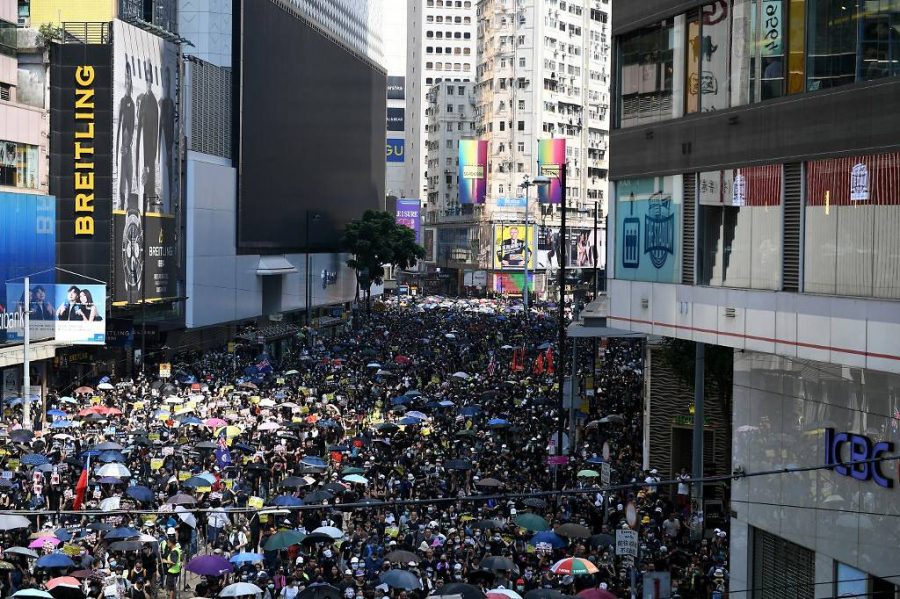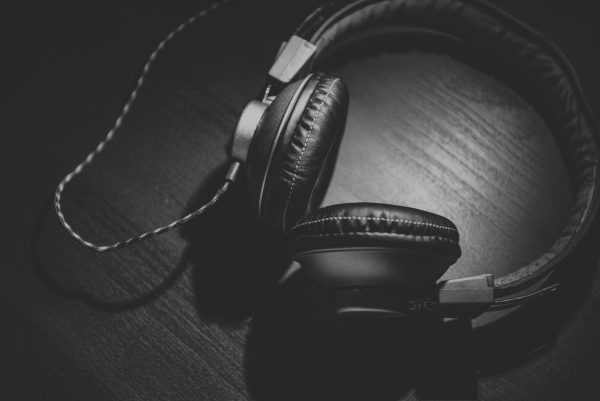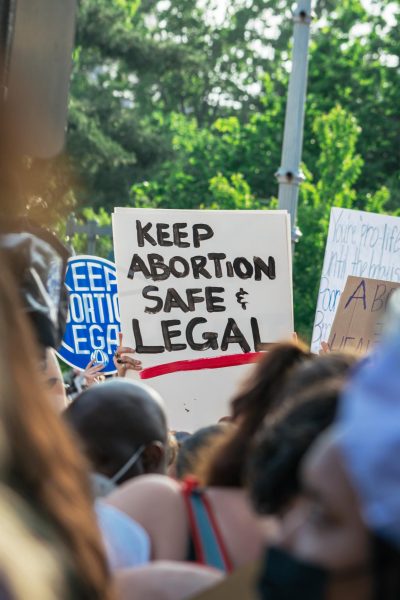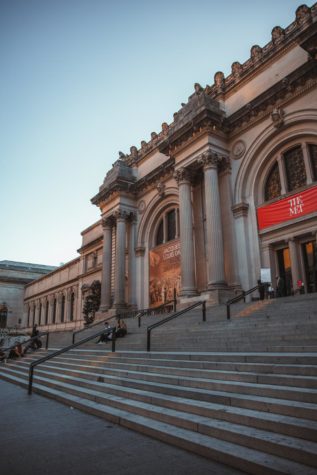China’s Little Issue
People march in Hong Kong on October 1st, 2019.
October 26, 2019
It has been 22 years since Hong Kong was officially given back to China after a long period of British rule. In these 22 years, Hong Kong has been filled with never-ending controversy and strife. The 2019 protests mark the second time in recent years when Hong Kong has faced conflict and protests all across the city.
Recently, the introduction of the Fugitive Offenders amendment, which arranged for ways to transfer fugitives between Hong Kong, China, Macau, and Taiwan, has led to extreme opposition resulting in violence across Hong Kong.
Hypothetically, if this bill was passed in the United States, it would be perfectly normal and accepted. However, the protests and controversy that erupted in Hong Kong, resulted from the underlying mistrust of the Chinese legal system and the growing fear of the Communist Party encroaching on Hong Kong affairs.
The idea that fugitives can be transferred back to the prescribed place where they committed the crime is not an outrageous law. The problem is that Hong Kong residents do not trust the legal system in China to meet the standards for judicial fairness. There is also concern over China imposing its will through taking away the power of Hong Kong’s legal system through specific details in the amendment that allows for arbitrary extradition in cases with little to no evidence. These concerns are the main causes of the violence and conflict that have spread across Hong Kong.
The law is not outright immoral, as the idea that criminals should be held accountable for their actions is justifiable. The original motive for the law, was the murder of Poon Hiu-Wing in Taiwan by 19-year old Hong Kong resident Chan Tong Kaiin 2018. Chan Tong Kai returned to Hong Kong and even confessed to the crime, but since no law had been conceived for the transfer of fugitives, Chan Tong Kai went unprosecuted. The law, which has been withdrawn, would help improve Hong Kong and keep criminals accountable as Hong Kong could be considered a safe haven for criminals fleeing prosecution. Overall, the law had good intentions, but may have signalled the looming intrusion of the Chinese government on the rights of Hong Kong.
While the pro-democracy stance and support of human rights by the Hong Kong protesters is admirable, the protesting and violence that is occurring is not beneficial towards Hong Kong. The bloodshed and strife done to Hong Kong outweigh whatever outcome the protesters are striving for, especially after the withdrawal of the original law that sparked the protests. Even if the protesters’ demands are met, the collision course set between Hong Kong and Beijing is inevitable. Eventually, China will try to consider Hong Kong under its direct sovereignty and the differences in the two cultures will clash. Either Hong Kong will change or China will change. The protesting is causing unnecessary violence all for results that are only delaying the inevitable. More so, the recent protests suggest more about the ineffectiveness and incompetence of the Hong Kong government, than the goal they are trying to accomplish.
While China’s human rights violations are very likely to be answered in the future, the Hong Kong protests are not what Hong Kong needs at this point in time.













